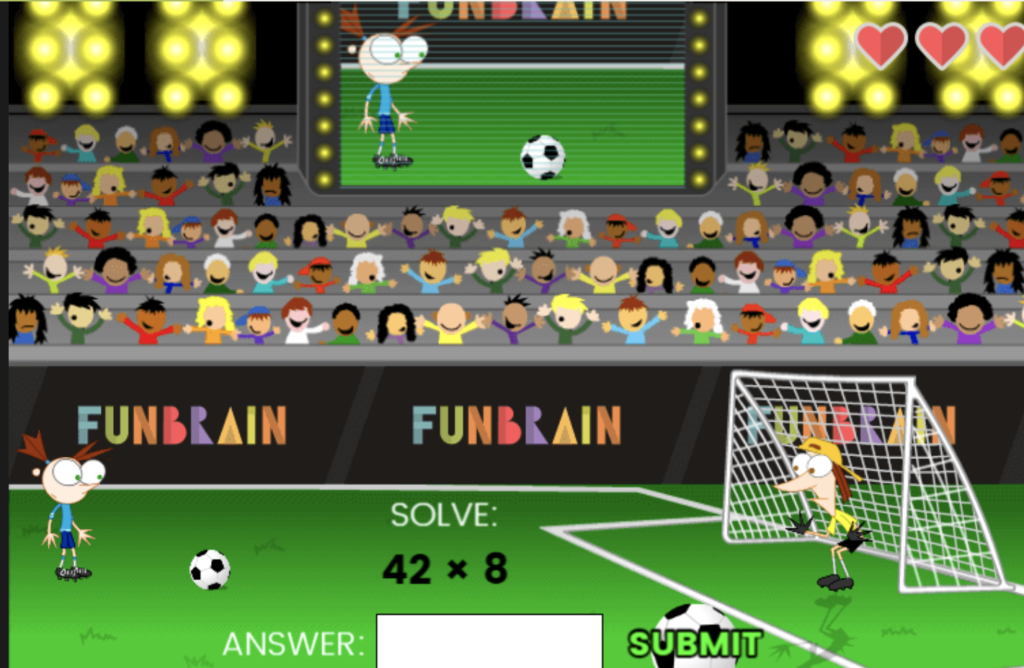Failure is a key component in video games and it distinguishes video games from other mediums. This week, we studied educational games. One of the games we played was SPENT, a game that aimed to get people to donate to the impoverished people by trying to increase players’ empathy towards the poor. In this game, failure, and the pain/negative emotions induced from failing, was used to teach the players how hard it is to survive as a low-earning person. Other games we played in this course used failure in a similar way to tell something serious. For example, failure in Hair Nah helps the players to understand how hard and annoying it is to be a black person and everyone always wants to touch your hair; failure in Dys4ia helps us understand the frustrating experiences of gender dysphoria and hormone replacement. Speaking about failure in video games, Anna Anthropy told the Penny Arcade Report that, “in what other form do people complain as much about being frustrated? A video game lets you set up goals for the player and make her fail to achieve them. A reader can’t fail a book. It’s an entirely different level of empathy that most people simply cannot comprehend, and so the game makes this particular empathetic frustration available for all to experience” (Ben Kuchera, 2012). Failure in video games can often create emotions of frustration or pain in the player, which allows the player to empathize with others. The concept of failure that is unique in video games makes video games a good medium for education or spreading awareness about serious issues.

After doing some searching online, I realized that failure is not only able to produce prosocial results in educational or serious video games. There is research that suggests failure in video games in general helps increase positive traits in players. First, video games provide a safe environment for failure. In a study by Dr. Kurt Squire, it was concluded that “ provide us a safe space with which to experiment with failure. And learning how to fail is a necessary step in learning to succeed.” Failure in video games can also increase players’ confidence. Studies conducted by Social Science Computer Review in 2017 also concluded that “a range of popular off-the-shelf video games were reported as helpful in providing players with the opportunity to feel confident under pressure and, importantly, some players reported transferring these positive psychological effects to their real-world lives.”
In addition, failure in videogames promotes growth-mindsets and grows player resilience. An article by Bigthink.com claims that “through games we can help develop growth mindsets within ourselves. Children in particular can see their improvement in real time and may be taught to understand that skills, knowledge, and abilities are not fixed but open to growth.” Videogames encourage players to become better little by little. In Jesper Juul’s the Art of Failure: an Essay on the Pain of Playing Video Games,” he argues that “failure in a game is unique in that when you fail in a game, you (not a character) are in some way inadequate. Yet games also motivate us to play more, in order to escape that inadequacy, and the feeling of escaping failure (often by improving skills) is a central enjoyment of games.” In contrast to challenges in real-life, which may seem impossible to beat, many videogames break down these seemingly impossible challenges into levels with increasing difficulties to keep the players encouraged and help them get to where they eventually want to.
But, is this system really flawless? I agree with the prosocial effects of failure in video games mentioned above, but as a person who grew up in China and is interested in ancient eastern philosophies, I also see some drawbacks to how many video games use failure. Now I will discuss these possible drawbacks. They will apply to some video games or certain genres of video games but not all videogames.
First, many video games promote a win-lose dichotomy and perpetuate the duality of winning and losing. They suggest that a player can either win or lose, and make these two states clearly distinct from each other. This keeps players from understanding the perplexity and fluidity of reality. What about instances when a player neither wins nor loses, or both wins and loses. What about when they are constantly winning or losing at each moment in time? What about when each person’s definition of winning or losing is different, when there is no fixed definition of what winning or losing is?
Also, in many games the idea of achieving the win-state is what keeps players going despite the painfulness of losing. This promotes players to be goal-oriented or result-oriented rather than process or growth-oriented. In Fun Brain’s game Math Soccer, when the player answers the math question incorrectly, they will not be able to score a goal, the big screen will say “MISS!” in all caps and red, and the audience will give cries of disappointment. This is the game intentionally creating shame in the players. And if the player answers the math question correctly, then the audience will clap their hands, which continues the idea that winning is good and failure is bad and shameful. I think that the fact that society portrays failure to be so shameful is the very reason why people are afraid of failing and people tend not to try again after they fail in real life. So by creating shame, Math Soccer is perpetuating the idea that failure is embarrassing when it shouldn’t be.

Also, as many games, especially more skill-based video games, encourage players to try again after they fail, they imply that if you work hard enough you will be able to achieve success. This is based on the ideas of the American dream and the Western idea that anything is possible if you work hard enough. However, I personally think that that is not a wholly accurate representation of the real world. In reality, your success largely depends on your identity and your socioeconomic, cultural, and racial background. Also, in many ancient traditions, people’s success or failures are attributed to their luck, or karma in Asian traditions. Sometimes even if you try really hard, you might get really unlucky and still not succeed (I’m sure we have all encountered bad luck when we play video games). Othertimes, what it takes to win is not hard work, but rather a shift in perspective or attitude of what winning means. There are games that adopt this kind of win-state, such as Save the Date and There is No Game. Thus, the idea that you will win if you try hard enough is a rather narrow perspective of thinking about success and failure.
While many video games provide a fail-safe environment that creates prosocial effects, most video games with fail-states do that within the narrow framework of capitalism and western ideologies. However, note that there are games that stray away from this path and portrays failing and winning differently. In conclusion, I think that in order for videogames as a medium to be more successfully educational and make a better impact on the world, there should be more games that provide alternative perspectives on what failure and success means and challenge how society inherently perceives failure and success.
References
The Art of Failure | The MIT Press
Video games and the paradox of failure – Big Think


I really enjoy how encompassing your discussions of how failure can be interpreted and influence player actions are in this post. I believe it to really be a case-by-case sort of thing is where a player’s attitude towards wanting to try again one more time can be radically different even if the games are incredibly similar. Even an artistic or narrative choice can significantly multiply how stubborn a player is in realizing their progression goals within a game. I wish this was something more researched and applied as I would love for there to be tools to help motivate me in schoolwork that I struggle to continue trying with.
I think the ideas you present in terms of thinking about the effects the player being “successful” or “failing” are very intriguing. I think the typical educational game designer’s idea of celebrating when a player is able to either solve a problem or understand a concept is something to be commended, as I think this can encourage players to look for ways to succeed that are often tied to how the game is trying to teach its player. However, you raise a valid point in how it can be unproductive to classify the player’s efforts into solely “success” or “failure” as in Math Soccer, and how it can even stifle a player’s motivations if they are unable to quickly understand the concepts presented to them. I agree that educational games should not necessarily deride its players for their “failures”, and that a players failure can actually lead them to becoming more educated on the topic the game is covering. While providing students with praise when they succeed in educational games may encourage them to strive to further educate themselves in the future, it may also be beneficial to get them to think about their motivations when learning, and encourage them to keep learning when they are not necessarily succeeding or do not have a competitive onus to learn.